‘The same enemy’: Syrians endured Russian bombing for years. Now they tell Ukrainians to expect the worst
Inside the rebel-controlled Idlib province, Syrians speak of their hopes and fears for the Ukraine war. Borzou Daragahi reports from near Saraqib
Your support helps us to tell the story
From reproductive rights to climate change to Big Tech, The Independent is on the ground when the story is developing. Whether it's investigating the financials of Elon Musk's pro-Trump PAC or producing our latest documentary, 'The A Word', which shines a light on the American women fighting for reproductive rights, we know how important it is to parse out the facts from the messaging.
At such a critical moment in US history, we need reporters on the ground. Your donation allows us to keep sending journalists to speak to both sides of the story.
The Independent is trusted by Americans across the entire political spectrum. And unlike many other quality news outlets, we choose not to lock Americans out of our reporting and analysis with paywalls. We believe quality journalism should be available to everyone, paid for by those who can afford it.
Your support makes all the difference.A network of underground tunnels and earthen berms crisscross the muddy front line between Syrian opposition positions and Russian-backed regime forces just beyond the field to the south near the town of Saraqib.
The battle-weathered Syrian fighters here have been confronting the forces of Vladimir Putin and his local allies for much of the past decade. And along with other Syrians, they have some advice for Ukrainians trying to survive Russian air power and missiles: dig in, prepare for more heartbreak, and take solace in being on the right side of history.
“Ukrainian people, we love you,” exclaims Abu Taim al Mourad, a 45-year-old former nurse from Hama who is now among the fighters manning the front line, and cheerily praising the efforts of Ukrainians in holding back the Russian advance. “The Ukrainians fight like beasts, and we hope they win. We are fighting the same enemy, and if Russians lose there it’s good for us here.”
Realising the stakes, Syrians have also offered Ukrainian counterparts small measures of intelligence and advice on Russian war tactics, according to several sources.
During a two-day visit to Idlib province, the corner of northwestern Syria controlled by the remnants of the 2011 uprising against the rule of Bashar al-Assad, the Russian invasion of Ukraine was on everyone’s minds.
In universities and hospitals, in cafes and makeshift tent encampments, as well as among fighters facing daily mortar attacks along the front, people watch videos of the Ukrainian battles, and the Russian destruction on their phones and on television screens.
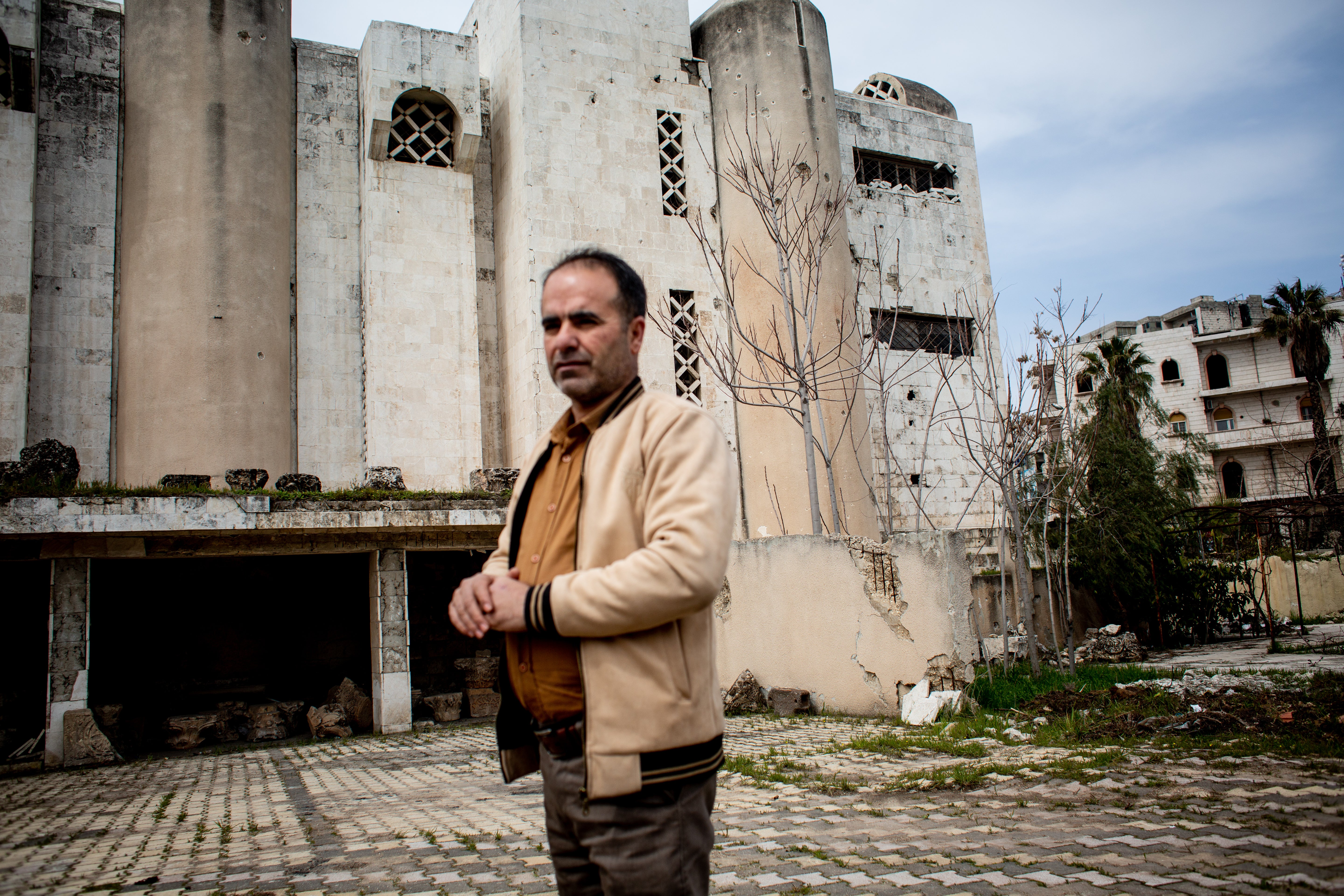
They see bombed-out buildings, ruined architectural treasures, long lines of desperate people holding plastic sacks and the hands of their children seeking refuge at borders.
It is heart-rending, and invokes traumatic memories of their own ruined cities: Aleppo, Hama, and Homs.
“They’re going to be mentally destroyed,” says Sara Kassem, a journalist for the online news outlet Sy Plus. “Now they won’t have time to practise instruments or sports, or go to school, to go to concerts or visit friends. They’re going to lose people: friends and family members. They’re going to lose their sanity as they just fight for food, for their land, for their houses, for their children. The worst thing is when you see loved ones killed in front of your eyes.”
However, there are major differences between the lingering 11-year conflict in Syria and the month-old war in Ukraine.
My experience is the Russians are savages. They try to destroy everything. They don’t respect any rules. And now they are trying to do to Ukraine what they did to Aleppo
Syria’s saga began as a popular mass uprising against president Bashar Assad’s dictatorial regime, later devolved into a vicious civil war that eventually drew in Russian air power and ground forces to support the Damascus government. Russia invaded Ukraine on 24 February in an apparent attempt to topple the democratically elected government of Volodymyr Zelensky and install a pro-Kremlin regime in Kyiv.
But there are also many similarities. In both countries, Russia publicly disparages its opponents as extremists – Jihadi terrorists in the case of Syria, and Nazis in the case of Ukraine.
Russia and its allies target civilian apartment complexes and commercial areas, creating massive casualties and prompting a major flow of displaced people. Hospitals, schools, houses of worship, cultural treasures, and commercial centres are all fair game, sometimes struck by thermite fire bombs that can burn through steel. Cities are besieged for months or years in acts of collective punishment that is a cruel but effective way of suppressing resistance.
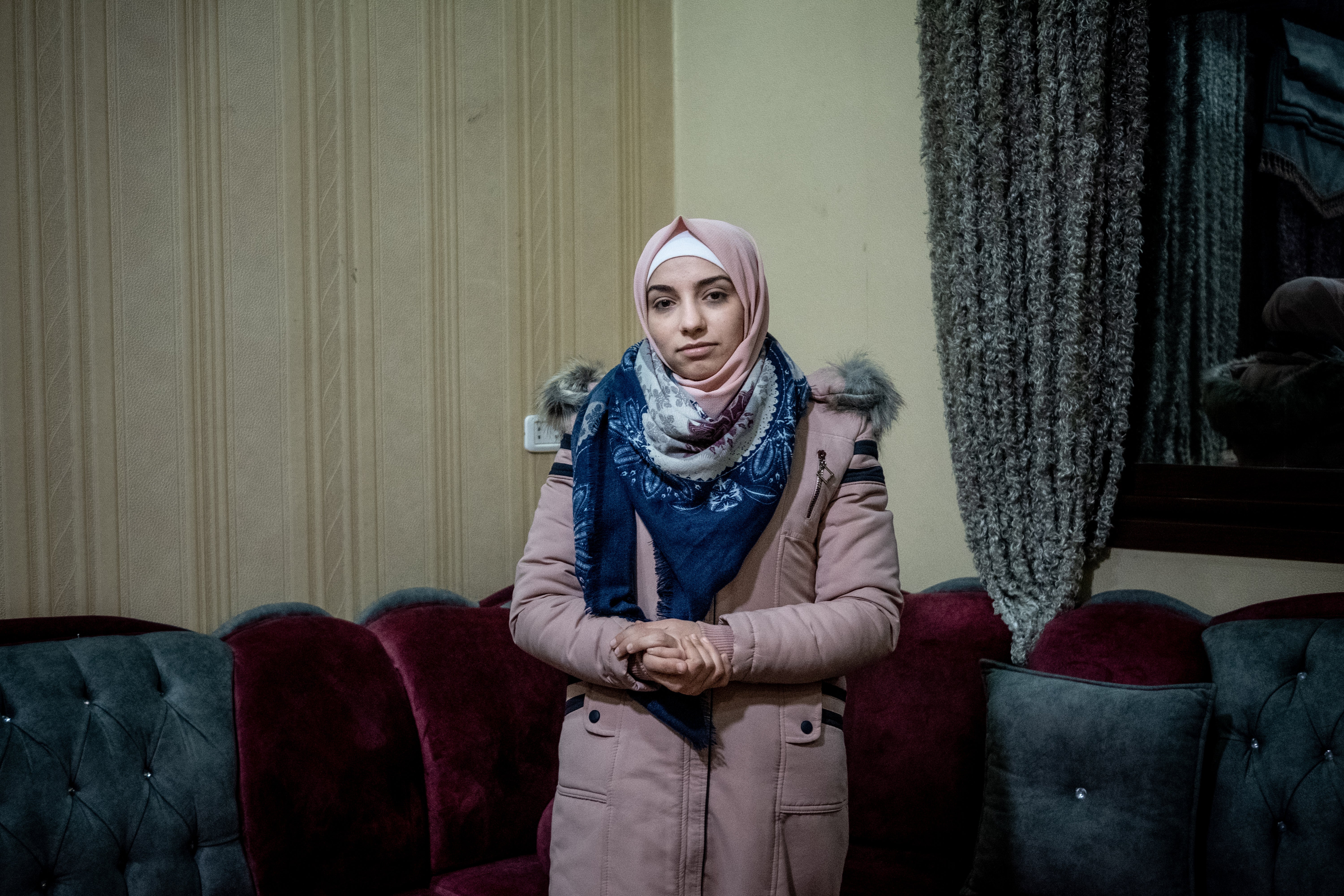
“It’s total war, and it’s very scary,” says Jassem Mohamed, 58, who took his family from the Syrian city of Maarat al-Numan to a makeshift tent along a railbed to escape Putin’s airstrikes and Assad’s barrel bombs. He now watches on his cell phone as scenes similar to Syria play out in Ukraine.
“If you want to live, just run,” he implores Ukrainians.
The heavy toll on civilians is deliberate, say Syrians. Fleeing, desperate and wounded women, children and the elderly tie up resources, clog up roads, and divert the attention of soldiers, war planners and political leaders. Ukrainians are learning this lesson the hard way, as Russians bomb buildings that are clearly marked as housing displaced children, just as they hit Syrian hospitals clearly marked as medical facilities.
“To Russians the civilians and the fighters are the same,” says Abu Hudayfa, a 25-year-old Syrian fighter who has been a soldier for nine years.
“When they can’t beat us, they bomb civilians,” says Abu Taim al Mourad, who like all Syrian fighters uses his nom de guerre when speaking publicly. “We all have families. If they get bombed, we can’t fight. We will go look for them.”
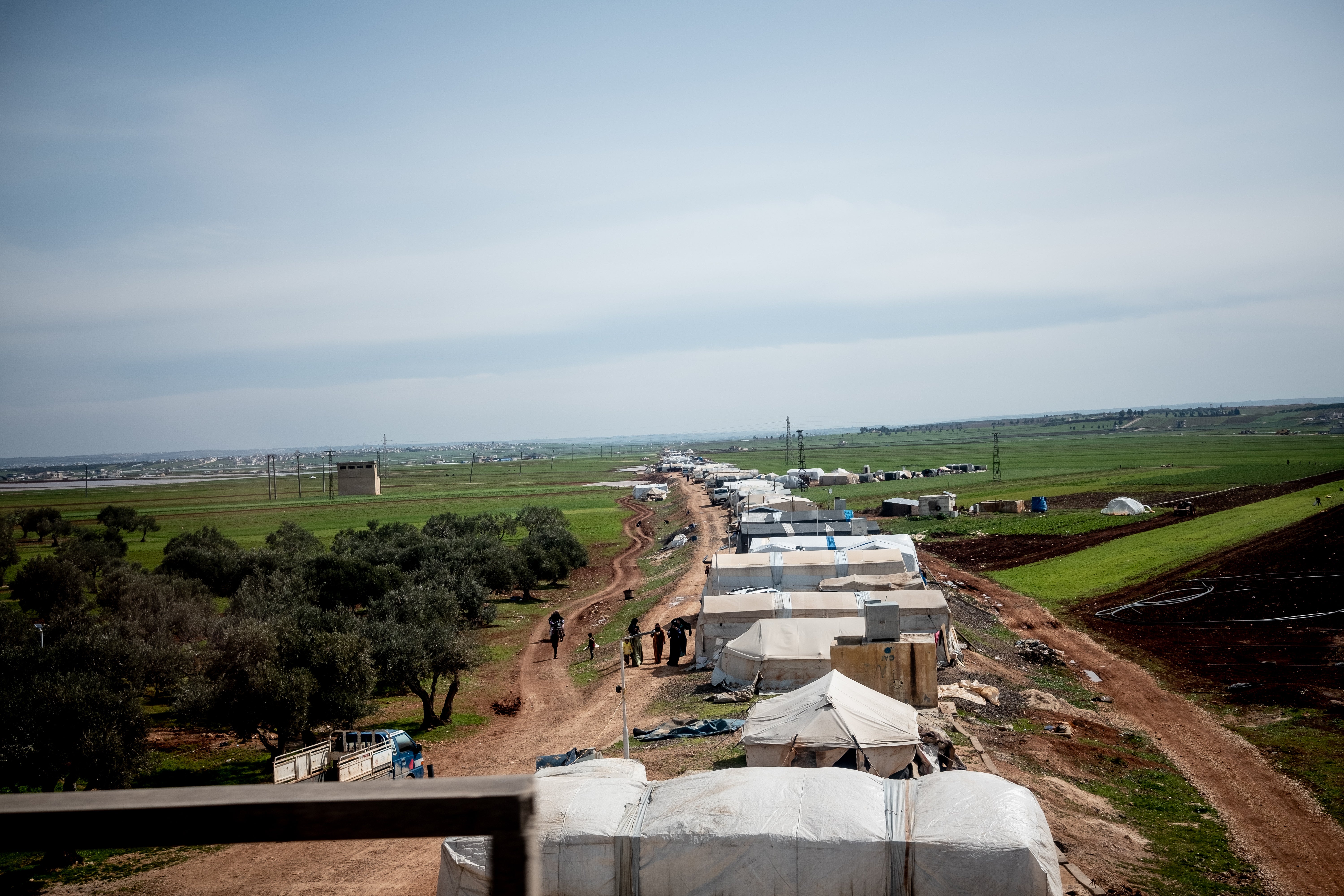
The conflicts are also somewhat intertwined. Putin has boasted that pro-Assad Syrian mercenaries have volunteered to bolster the flailing Russian offensive in Ukraine. Pro-opposition Syrian spotters this week detected large numbers of planes taking off from Khmeimim Air Base in Latakkia and from a military base outside Aleppo, presumably heading back to Russia to reinforce Ukraine war efforts, says one Syrian official.
There is hope that the Ukrainians, backed by major Western and Nato powers, could deliver the Kremlin a humiliating, decisive defeat that would change the balance of power in Syria and force the Assad regime to commit to a political solution.
To that end Syrians have begun reaching out to Ukrainians, offering them intelligence, insight and information about Russian tactics and weaknesses, says Yasser al-Hajj, a senior official in the Syrian Interim Government, an opposition body with headquarters in southeast Turkey and northern Syria.
“If the Russians succeeded in Ukraine then we don’t know who is next,” he says in an interview. “If Russia loses in Ukraine, that helps us because then the Russians will have no friends left. So far, the regime is refusing to engage in any political discussion.”

There has been a measure of information-sharing on humanitarian matters.
The White Helmets, the Syrian civil rescue workers maligned by the Kremlin and its western dupes, and their Ukrainian counterparts have conferred on best practices for fishing the wounded out of rubble, said Navvar Saban from the Syrian-focused think tank the Omraan Institute.
“They were contacted by Ukrainian activists on the ground that have some kind of connection with the Ukrainian army about how to avoid being killed in a Russian attack,” he says.
In both countries, Russia and its local allies have repeatedly violated ceasefires and attacked humanitarian convoys seeking to escape from conflict zones. For Russia, ceasefires are often little more than opportunities for pro-Kremlin forces to reorganise, reassess and reset their military posture.
More than a decade of war has made every Syrian in Idlib an authority on ways of Russian warfare. The Idlib Museum, an imposing and mostly windowless building near the city centre, containing rare archaeological artefacts dating back to the Byzantine and Roman epochs, has been struck nearly a dozen times by Russian bombs.
Museum directors had taken and hidden most of the objects when the conflict began, but heavy monuments and remnants of ruins in the courtyard remained, and have been damaged in the repeated attacks. Museum officials say they hope counterparts in Ukraine saw the signs of war and made preparations beforehand.
“My experience is the Russians are savages,” says Ayman Nabu, director of the museum. “They try to destroy everything. They don’t respect any rules. And now they are trying to do to Ukraine what they did to Aleppo.”
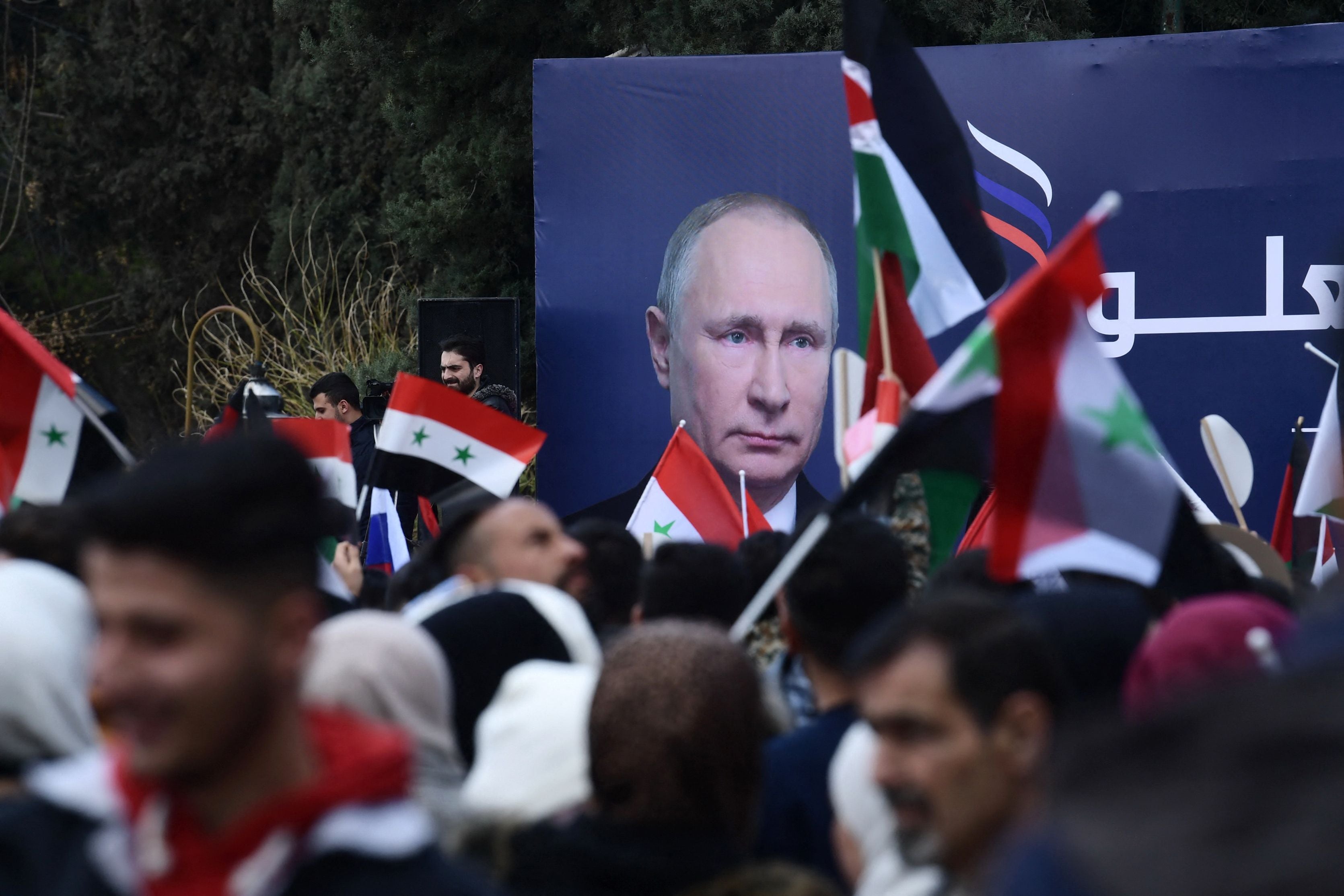
Syrians’ hearts sink as they realise that the same fate that befell them at the hands of Putin and his allies could afflict another nation.
They are especially haunted by the images of panicked rescue workers pulling lifeless bodies from the rubble of apartment blocks, and mothers distraught over their dead children. They are horrified by what is happening, and dread that Ukrainians may endure what they have undergone.
“What I am afraid of is massacres, massive massacres and suffering,” says Sara Kassem. She speaks of broken families, disrupted education, crushed dreams.
“What will happen is suffering for years, not just days or months,” she says in an interview. “It will become routine for them. The enemy will destroy everything, not just people and buildings, but souls. Most people here are destroyed inside, because they can never go back home.”
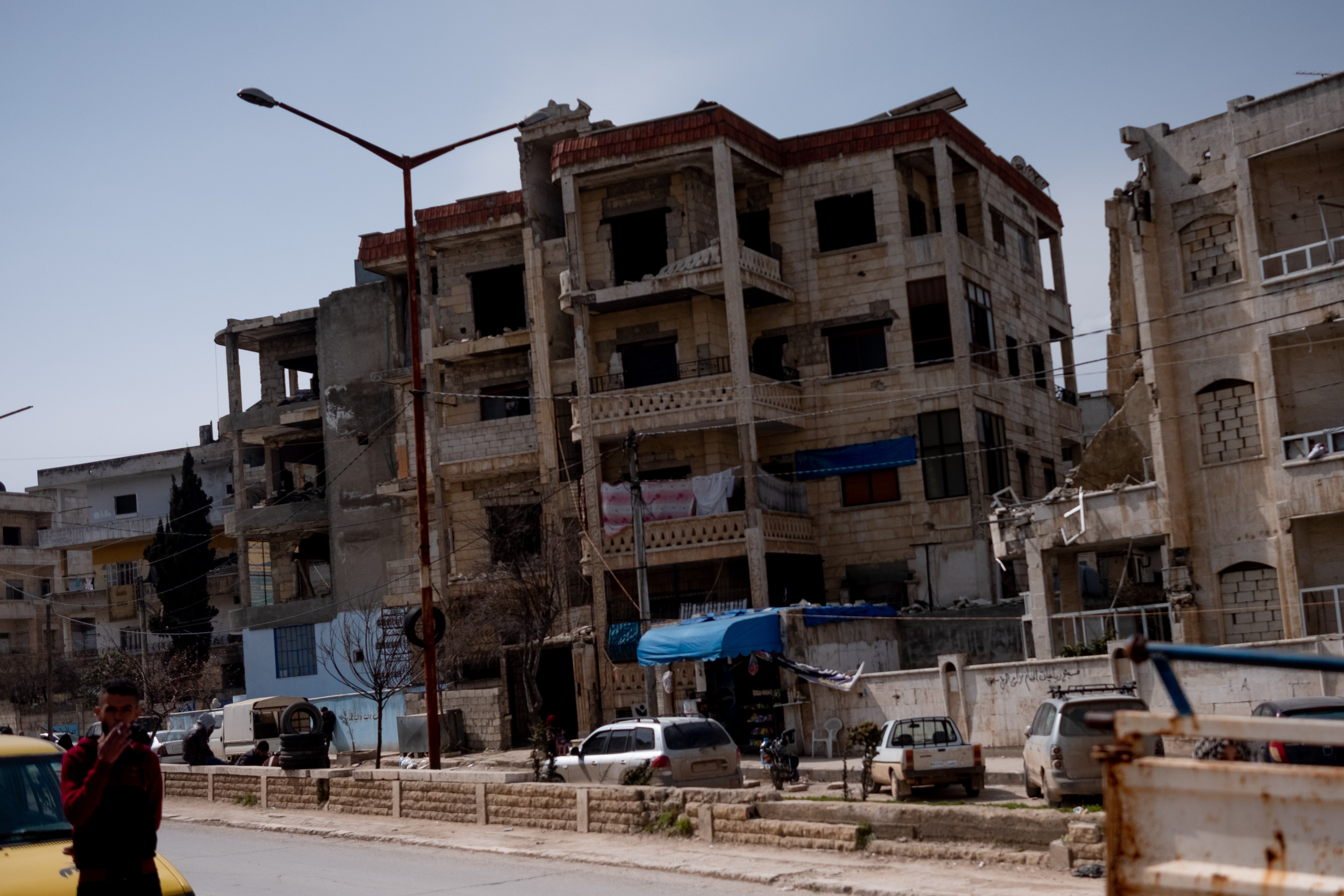
The real horror and the real danger may be what Russia’s tactics inflict on their victims over the long term. All across Idlib, men in black masks rule the streets, members of the Jihadi terrorist organisation Hayat Tahrir Sham, the most vicious and ruthless of the rebel groups, but also the most effective fighters against the forces of Russia and Assad. Gigantic billboards show armed men holding babies as well as AK-47s, whilst looking out through ski masks.
“The reality is if you want to get rid of the criminal, you have to become a criminal,” says Kassem.
“The criminal forces you to become something you’re not. In war, it is not the civilians who are the winners. It is the fighter. It is the killer. What Ukrainian people should be careful about is not to become corrupted or destroyed psychologically.”
Join our commenting forum
Join thought-provoking conversations, follow other Independent readers and see their replies
0Comments